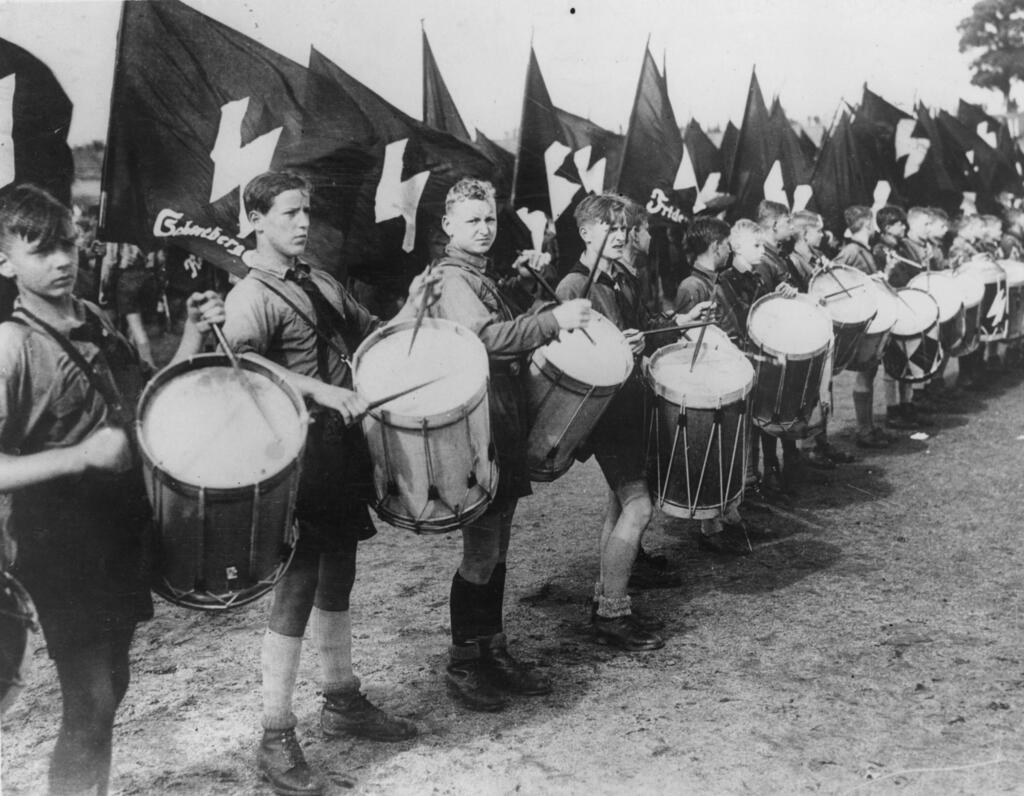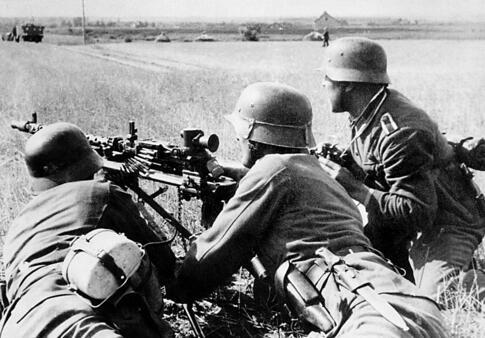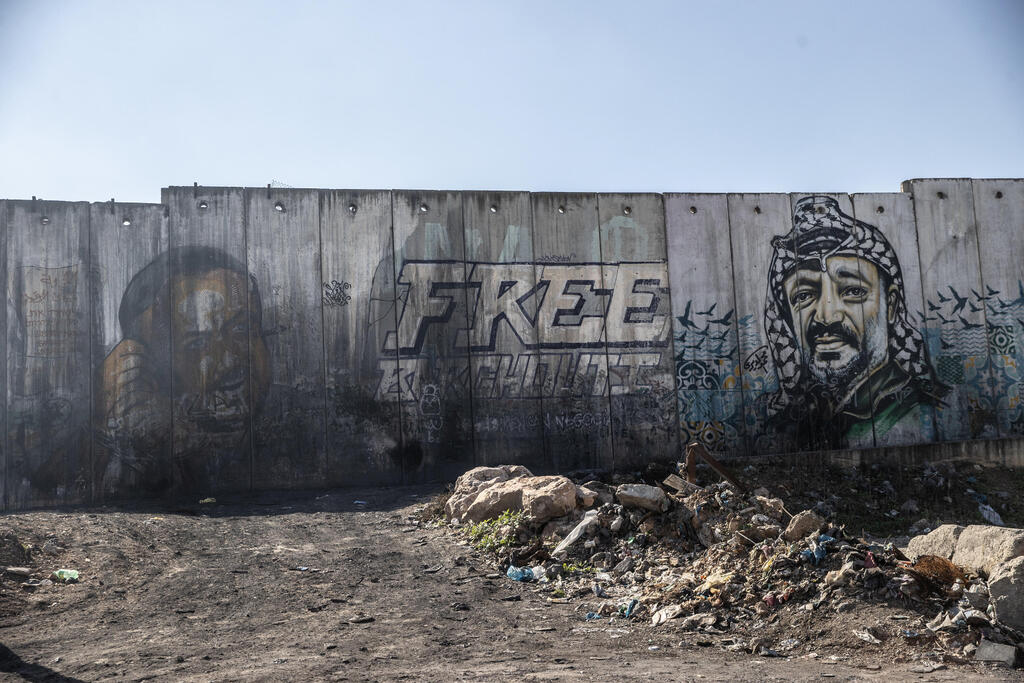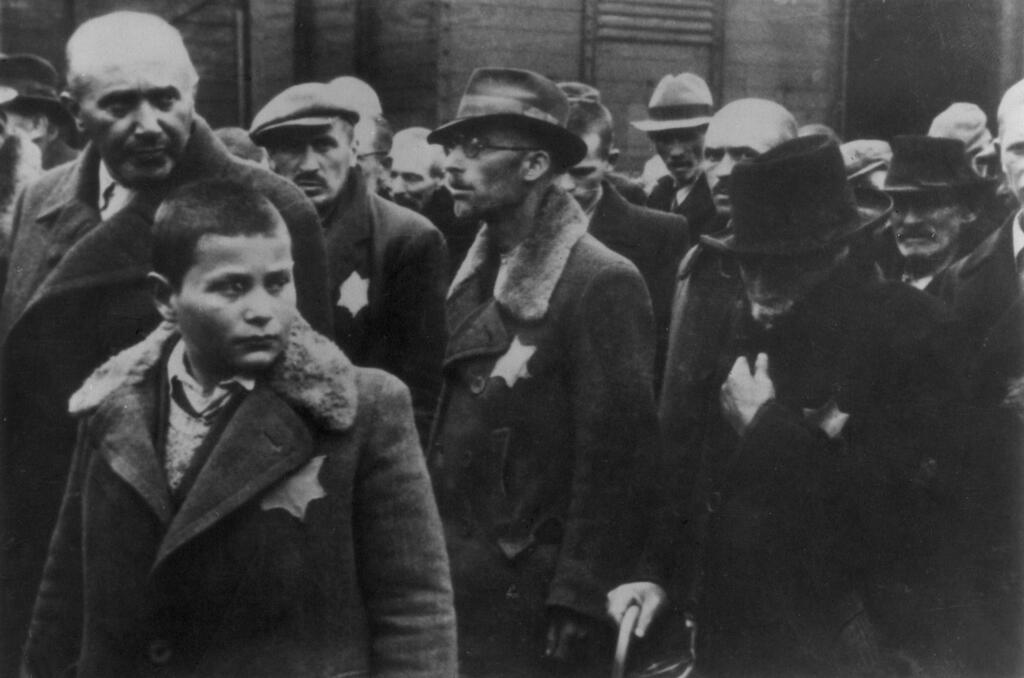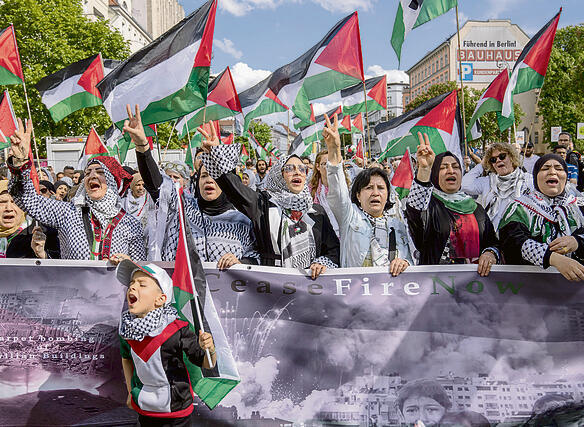Getting your Trinity Audio player ready...
At the age of 15, Oriana Marie Krüger didn’t know there were still any Jews in the world. "I was raised in a Christian family in a small suburb in North Berlin, with church and Sunday school," she said. "We obviously learned about the Holocaust, but for us, it ended with the Jews getting murdered.
We just didn’t know. We didn’t know there were still Jews in France or Germany and certainly not in Israel. We lived in a very, very white, German, Christian suburb. At our school of 600 students, there was one Asian and one black student. As a child, I never met either a Jew or a Muslim. We knew Jews from the Bible or something. Only later on, maybe in 11th grade, did we learn about the Israel and the Middle East conflict."
"Like most German schoolchildren, for Krüger (now 28), the annihilation of European Jewry wasn’t anything tangible, but rather something that only exists in history books. “When you learn about the Holocaust like that, there’s nothing connecting your family to what happened during the Nazi era. If you survey young Germans, you’ll discover there were almost no German Nazis, that we apparently imported them from neighboring countries, as most Germans were busy rescuing Jews. When you grow up you realize that, statistically, this couldn’t have been the case. If no one in your family is listed as a Righteous Gentile, your family were probably accomplices."
One 2012 summer evening, Krüger was sitting down for dinner with her mother, father and younger brother, and sometime between the starter and main course, out of nowhere, asked her parents what their parents, i.e. her grandparents, did during the war. Her mother told her she’d already asked her father where he was during the Holocaust and he started shouting at her and said he wasn’t involved. Krüger’s father chose to ignore the question.
It took Krüger a decade to confront her maternal grandfather directly (her paternal grandfather died when she was four) and learn that he had been in the Hitlerjugend (Hitler Youth) and that his father fought in the German army on the Russian front. Her father told her that his father had fought on the Norwegian front.
At the end of November, the German city of Dortmund hosted the 2023 European Mayors Summit Against Antisemitism organized by the Combat Antisemitism Movement (CAM.) Krüger, who has been managing the movement’s European branch for the past two years, was asked to give the conference’s opening address.
As she was preparing for the speech, Krüger had speaking cards, but couldn’t find the right words. CAM’s CEO Sacha Roytman saw she was having trouble. He’d recruited her for the job and didn’t regret it for a moment. He wasn’t used to seeing her hesitating, unsure of herself – a bit lost.
When he asked her what the story was, she said she didn’t know what to say. "Why do you work here?" he asked her. And Oriana started talking effortlessly as the speaking cards fell from her hands. She didn’t need them. She told him about this Nazi grandfather and that Nazi grandfather. When she was done, Roytman told her that’s exactly what she should say, word for word. He wondered how she hadn’t told any of her colleagues. “This wasn’t the story for me" says Krüger. "It was obvious to me that everyone connects the dots and realizes my family was involved."
CAM was founded in 2019 and has since become a leading voice in the struggle against antisemitism. “Krüger sent me her résumé over two years ago. There are hundreds of applicants for positions in the organization and it took me a few short minutes of a Zoom call to realize she was the most talented. I knew her story even before she told me herself. I know the history and it was clear to me that her family is from a Nazi place."
"She sought my advice the day before her speech at the conference. I asked her what her grandparents did during the Holocaust and she told me and I said she had to tell her story. 'I’m Oriana Marie Krüger. One of my grandfathers was in the Hitler Youth. My other grandfather was fighting with the Nazi army in Norway. And I work for the Combat Antisemitism Movement’. That was her correction."
"I wasn’t in the room when Oriana revealed her past at Dortmund," said CAM Director of Strategic Planning and Projects Management, Hadas Bar-Erez. "When we were on vacation in Thailand just now, a young man came up to her and asked her why she spoke Hebrew. She told him the story. That’s how I heard the story for the first time. I reacted by telling her I loved her even more. We became the best of friends."
The journey leading the teenage girl, who didn’t know about the existence of Jews in the world, to spearhead the fight against antisemitism in Europe began when she was 15 when her Religious Studies teacher at school suggested she join an exchange program with students in Israel. She jumped at the chance to meet Jews for the first time in her life, eating and sleeping in their homes. But, as a Christian, she was mainly excited about visiting the sites where Jesus was born and preached. The program was based in Kibbutz Lochamei Hageta’ot. Obviously.
"I mainly remember ceremonies like Kabbalat Shabbat, and how surprised I was that Jews are people just like me, that my hostess was interested in the same things I was -boys, clothes, growing up" she recalled.
"I remember traveling to the West Bank and seeing the (separation) wall. We didn’t know anything about the Israeli-Palestinian conflict and suddenly we reached a spot where one side was Jewish and the other was Arab. We then passed from one side to the other and there was a security check."
"The passage wasn’t easy in terms of how we and the Palestinians were treated. When we got back to the kibbutz, we confronted our hosts and asked them why they treated Arabs this way. They explained that the separation wall is designed to prevent terrorist attacks and the murder of Jews. And we didn’t even know it existed. What were they talking about? This experience made me interested in the conflict in the region. Not only had I witnessed it, but I also wanted to understand why Israelis do what they do and as I had formed a connection with my hosts, it had a personal element to it," she added.
"Until then, anything to do with the Holocaust just made me sad. I was shocked that human beings could behave so cruelly to other human beings, but when I came back from Israel, I got it. I understood that it’s not a national guilt but rather something personal. It’s a family thing. With this, came a severe feeling of guilt."
“The hardest thing about the way the Germans treat the Holocaust is that they always talk about their own suffering and about how they were victims of the war. One of my grandfathers had to flee to Poland. The other grandfather’s home and town were bombed and my grandmother told me about her terrible suffering as a child when her home was bombed and she couldn't find her doll. There are never any Jewish victims, no Jewish suffering. I read a book titled 'My grandfather couldn’t have been a Nazi’ that illustrates the extent to which the Germans believe their grandfathers were heroes. It really unsettled and shocked me and filled me with anger."
"My grandfather on my mother’s side was 93 by the time I confronted him directly a few years ago. I stopped asking him general questions about the Holocaust. I couldn’t listen to how much they suffered anymore. I could no longer live with this duality of knowing what happened and who the real victims were, and hearing that I am the descendant of a victim. It just isn’t true, or at least it’s not the full story. So, I did some research. I went to ask my grandfather where he was when the synagogue in Siegen, the city in which he lived, was set on fire in 1938. I told him I wouldn’t accept an answer that he didn’t see anything, didn’t hear anything and didn’t know anything. But he said that he didn’t know anything about it."
And then what?
"I asked him whether joined the Hitler Youth. He said he did, obviously. But only did because he liked horseback riding and you could ride horses there. I told my mother who was shocked. The difference between us is that my mother was raised in a generation of silence. The other difference is that I had my suspicions. He realized I knew even before I asked him outright. My father told me about his father’s Nazi past. When I asked why he never confronted him, he explained that he didn’t want to ruin the image he had of his father."
Two years after Krüger visited Israel, a schoolteacher played the "Model UN" game. Two characters involved in an international conflict sit around a table and try to reach a solution. “I was supposed to play Arafat and someone else was supposed to be Netanyahu. The student who was meant to be Netanyahu became massively stressed. He kept saying ‘It’s hard. I don’t know what to say. I’m so not on their side’. So, the teacher switched us and I realized how easy it was to present the Israeli side, that I identify with it much more easily.”
"I was the only one in class who could talk in Israel’s favor. Our generation’s narrative is that Israel is responsible for everything. It’s so embarrassing because we’ve learned the history of the Holocaust, about the survivors who went to Israel. We knew the facts, and I was surprised that I was the only one who could explain it. It’s still this way. This is what students in Germany are exposed to about the conflict: Israel is the strong bad guy in the story and the Palestinians are victims. This worldview nurtures the violence toward Jews we’ve been seeing in recent years, especially since October 7."
None of this prepared her for her studies at the Political Science faculty at the Free University of Berlin. “In a seminar about the changes in the Middle East, we read about the “feminist structure within Hamas.”
A student raised her hand and asked if Hamas wasn’t a terrorist organization. The lecturer got very angry and said that wasn’t the subject matter. Most of the students were glad to hear from an alternative perspective that views Hamas as a welfare movement rather than as a terrorist organization. Everything we’re now seeing at Columbia and further campuses was already there in 2014. There was a very anti-Israel, pro-Palestinian atmosphere."
"The seminars were very critical of Israel, so I was more interested in the seminars about antisemitism where there was a more pro-Jewish, pro-Israeli atmosphere. You then realize there’s a huge chasm in Germany separating Judaism, which is mainly about dead Jews, and Israel which's about live Jews.”
2019-2021 Krüger divided her time between Germany and Tel Aviv and completed a master's degree researching antisemitism. She stayed in Tel Aviv for a further two years, returning to Berlin in 2023. “I felt very much at home, very accepted. People were very open. I was invited to a Rosh Hashana meal where I met the 90-year-old grandfather. The whole family embraced me and let me be part of it from then on. I never encountered hostility for being German. They never blamed me. Quite the opposite. Israelis sometimes tell me they’ve forgiven us, the Germans, and that we need to make a distinction between Hitler and the German people and I find myself attacking Germany explaining that it wasn’t just Hitler, that antisemitism was an integral part of German culture and was popular at all levels of society. I was tougher on the Germans than on the Israelis. I then decided to meet Holocaust survivors. It’s hard to look them in the eye and understand what they went through.”
It must be even harder, knowing what your grandfathers did during the Holocaust.
"It’s hard. Luckily, my boyfriend is half Moroccan, half Yemenite."
I asked her how she felt about being able to walk around Tel Aviv, freely revealing her identity, while Jews and Israelis in Germany are forced to conceal theirs.
"I feel shame," she said. “I think it’s to do with the narrative we learn, that’s a story about racism rather than antisemitism. We don’t learn about the mechanics of antisemitism here, that’s a connection theory. You’re afraid of Jews, their money and power. Instead, they teach us about racism."
"When Germans today say 'never again,' they mean Israel must stop killing in Gaza. For them, the Gazans are the Holocaust’s Jews. We also have immigration of people for whom antisemitism was an integral part of their world. It’s a toxic and dangerous combination of anti-capitalist leftists who view Jews as wealthy, and the new immigrants. And the rest of the people don’t seem to care."
Why did you choose to learn about antisemitism?
"The real question for me is 'How can I, as a German, learn about antisemitism?' This is the main thing about our history and the world in general. It was there before the Holocaust, during the Holocaust, and it’s back now. If you don’t study antisemitism and learn your lessons, it’ll only get worse. We have to involve ourselves in dealing with antisemitism. It may be uncomfortable. It’s easier to close our eyes, but ignoring it won’t make the world a better place. I think that’s also the reason for the German tendency to portray the Israelis as Nazis. It makes it easier to explain to yourself why your grandfather did what he did. We’re repeating our antisemitism, this time on moral pretexts."
She has no fond memories of her paternal grandfather. She just remembers an angry grandfather shouting at everyone all the time. The other grandfather was emotionally and geographically distant. "He was a nice man. I don’t think he was a monster, but I judge them and I’m fuming at them for not taking an interest after the war in what had happened. They didn’t pass it on to my parents. They left us gaping holes in what we know about the past. If they had talked about it on a personal rather than national level, lots of things going on now in Germany could have been prevented."
Do you remember the moment you realized your grandfather had been a Nazi?
Krüger goes quiet and thinks. "I felt I’d always known, that I didn’t really need him to tell me,” she says. “But the worst part was that for him, going along to the Hitler Youth was like going to the scouts. Even in retrospect, he didn’t understand it was bad. Zero acknowledgment, zero admission of what he’d done, zero regrets. As far as he was concerned, he did what everyone did. I haven’t forgiven him and I felt no pity for him. My genes are like his, but my values are the opposite. So, I don’t have to love him. He died two years after that. He didn’t disgust me, but I didn’t want anything out of him. When he’d come for Christmas, for us it was like ‘When is he leaving?’"
Is combating antisemitism a redemption of sorts for you? Something to wash away the guilt?
"I learned about my family and reached my own truth. I see my friends for whom their grandparents suffered and were victims, and I see how it affects their attitudes toward Jews and Israelis. I’m not willing to deny my family’s past. When the time comes, I’ll tell my children their family history."
"I don’t want them to feel like I do, deprived of essential information. It’s as if something in me is incomplete. It’s like a hole. I see how we’re repeating the same mistakes. I see the rise of the far right, and I’m choking. I choke when I see the anti-Israel demonstrations and the expressions of joy following October 7. I’m suffocating, I’m angry and crying. It burns me that at the Berlinale film festival award ceremony, they compare Israelis to Nazis and without mentioning October 7. I’m offended like an Israeli."
Have you thought of converting to Judaism?
"Yes, mainly because my boyfriend is Israeli. But I’m Christian. This is how I was raised and this is how I think of myself. Conversion is a long and hard process and I feel it’s a shortcut – like I’m escaping my family history. CAM has given me the chance to explain, to be a fair ambassador. Keeping daily tabs on antisemitism is hard work, but I need to understand the problem so as to propose solutions. There are moments when it’s worth it. I can be sitting with a friend drinking Aperol and she’ll mention she remembers her grandfather’s number from Auschwitz. I then understand I’ve done a good thing. I’m very proud of moments like this. But I don’t do it to feel good about myself, but rather because it’s the right thing to do. We need to learn what made people so cruel to others and do everything to make sure it doesn’t repeat itself."
"For me, Oriana’s eyes express the purest form of Tikun Olam – identifying distortions and correcting them in the clearest possible way,” says Hadas Bar-Erez. “She’s taken on a mission for neither personal nor financial gain. She’s the best worker in the organization. She’s responsible, independent and groundbreaking. I always tell her “You’d have hidden me in the attic. That’s our little joke."


